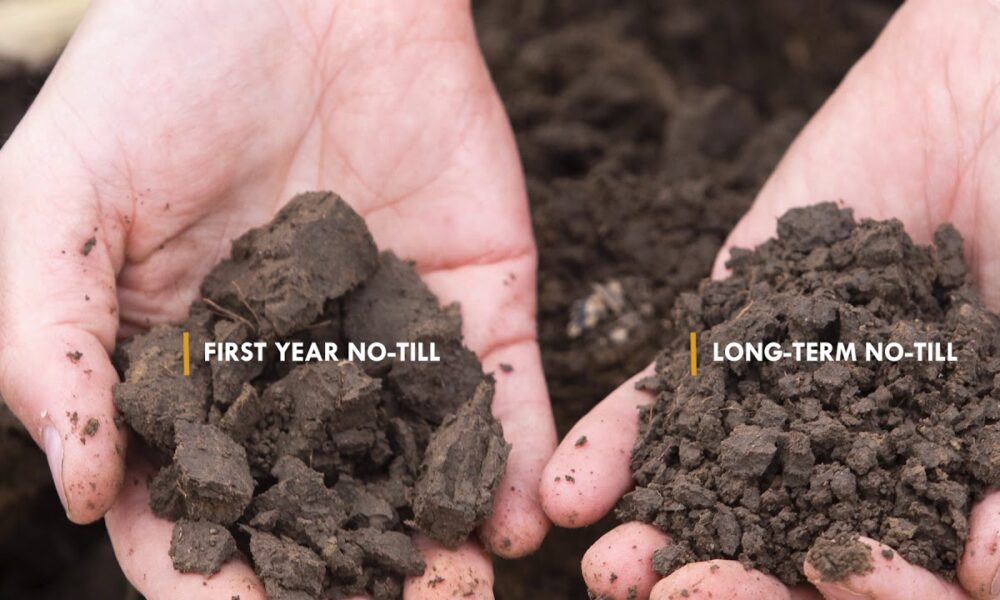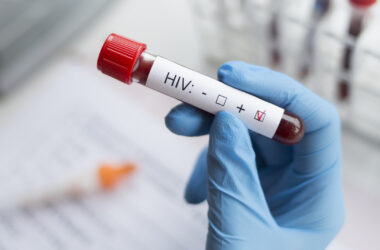In recent decades, the many negative effects of tillage, the practice of turning over soil after harvesting crops, have become increasingly evident: It disrupts soil structure, accelerates soil erosion, and causes runoff of pesticides and fertilizer, damaging adjacent ecosystems.
No-till farming, a practice that involves leaving the soil largely undisturbed, has been proposed as a more sustainable and less destructive alternative. The technique does not require the use of colossal tractors and instead proposes planting seeds in small, shallow openings in the ground, and pressing down the soil to cover them by employing smaller tractors or even doing it by hand.
Professor Joann Whalen, who teaches in McGill’s Department of Natural Resource Sciences, has been on sabbatical in Morocco this year at Mohammed VI Polytechnic University, working on the Daily Century Model (DayCent)—a model that simulates the movement of carbon and nitrogen through agricultural systems—and researching the effects of no-till farming. Her recent publication shows her findings while exploring the logistics of implementing no-till farming in Morocco.
“We use this model to make tools that farmers can use to see how choosing no-till methods and other carbon-saving practices […] will increase their carbon sequestration and reduce greenhouse gas emissions,” Whalen said in an interview with The McGill Tribune. “Farmers that can show such improvements will be eligible for payments in the emerging carbon markets.”
Whalen believes there are two major benefits to no-till farming: Measurable improvements in soil stability and minimal resource consumption.
“We measure soil parameters to have an idea about the soil’s ability to resist erosion, store water, and support a rich diversity of microbial and animal life,” Whalen said. “Because no-till farms minimally disturb the surface vegetation and plant residues, they can store more carbon in the soil under certain conditions.”
Farms often benefit from hidden ecosystems that preserve nutrients and moisture. In arid and semi-arid regions such as Morocco, it is especially crucial that the soil retain moisture if it is to remain fertile. Scientists like Whalen also closely measure the carbon-absorbing properties of hidden ecosystems to better understand whether they can mitigate climate change.
No-tillage farming also requires a smaller quantity of typical resources than traditional farming methods. According to the U.S. Department of Agriculture, no-till farming saves 33 litres of diesel fuel per hectare.
“Burning less diesel fuel saves the farmer money while reducing carbon dioxide emissions from the tractor,” Whalen said.
Widespread adoption of no-till farming could be key in making agriculture more efficient and sustainable, but there are challenges to implementing it.
“The main barrier to implementing no-till farming in Morocco is the cost of investment in the suitable farm machinery,” Whalen explained. “A big farm can justify the investment cost, but the majority of farms in Morocco and throughout sub-Saharan Africa are owned by smallholders who subsist on less than two hectares of land. Those with limited resources are not able to finance the purchase of no-till machines.”
The climate crisis compounds this issue because it disproportionately impacts smallholders. Droughts and heat waves, for example, strain crop yields, causing shortages that are much harder to handle for smallholders than large farm owners.
“Smallholder farmers need our support to carefully manage their scarce water resources, already under pressure due to overpopulation and inefficient distribution networks,” Whalen said.
Whalen believes that supporting carbon markets, trading systems in which carbon credits are bought and sold, is essential to making no-till farming more feasible.
“Farmers will be able to do more carbon farming when they get compensated for doing so,” Whalen said. “When you are offered the option to offset your carbon emissions, for instance when you buy an airline ticket, check the box. Your dollars could be a source of extra income for a smallholder farmer enrolled in a verified carbon farming program. By supporting this farmer’s livelihood, you help them to keep producing healthy, nutritious food for their family and local community.”








